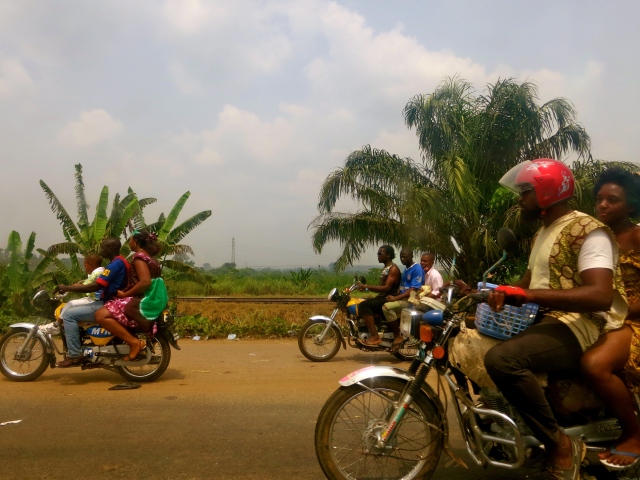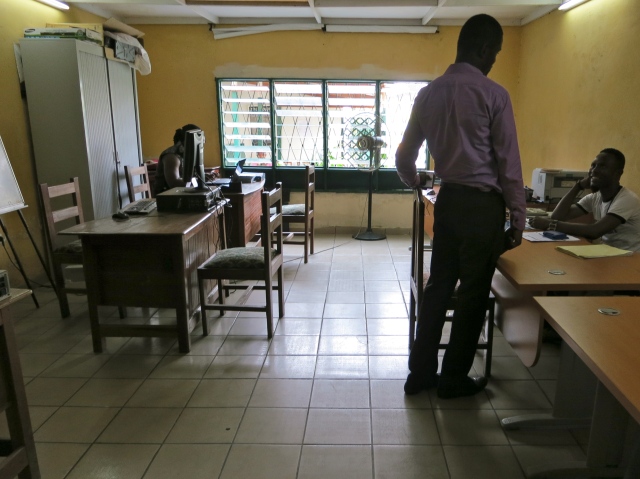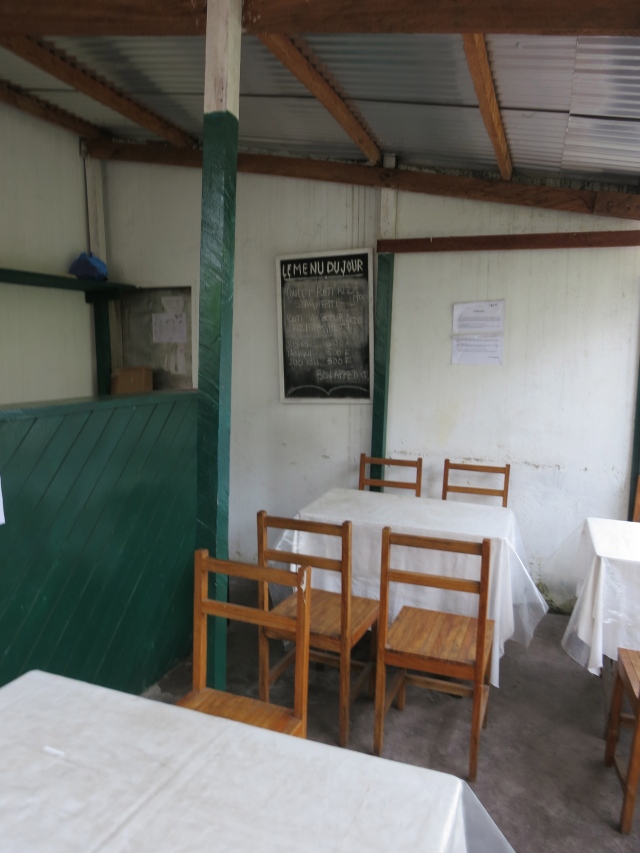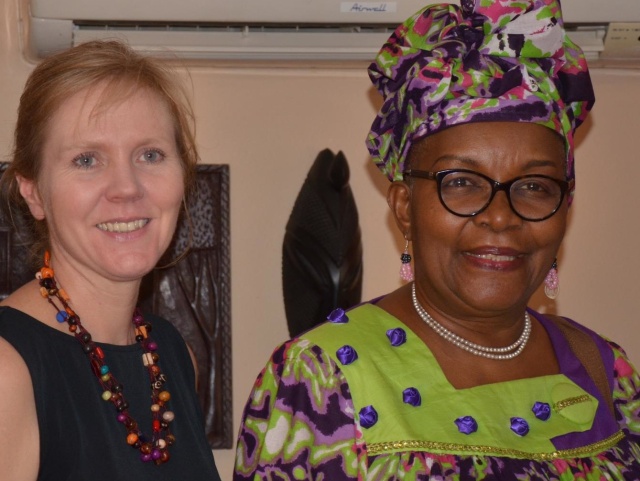
In response to this week’s Photo Challenge: Forward, I thought I would simply post this photo, taken two weeks ago today, of motorcycle taxis speeding towards Douala, Cameroon. But there is another kind of movement going on right now in Douala, one that is attempting to move the country forward towards acceptance of the rights of LGBT persons. These courageous activists, who are risking their lives to end discrimination and persecution based on sexual orientation or gender identity in Cameroon, deserve more than a photo. They deserve to have their stories told.
In Cameroon, people who are LGBT face pervasive societal stigma, discrimination,and harassment. They also face the possibility of imprisonment – Article 347 of the Cameroonian penal code criminalizes “sexual relations with a person of the same sex”. At least 28 people have been prosecuted under the law since 2010. One of them is Roger Jean-Claude Mbede, who was arrested and convicted of homosexuality in March 2011 after sending another man a text message reading, “I’ve fallen in love with you.” In December 2012, the Cameroonian court of appeals upheld the conviction and sentenced him to three years in prison.
Gay, lesbian, bisexual, and transgender people have a high risk of HIV/AIDS infection. They are often rejected by their families, who force them out of the home. When targeted by law enforcement, they have more difficulty in obtaining legal protection.Due to the social stigma and intense climate of fear, most LGBT people are forced to live out their lives in secrecy. Yet there are several impressive non-governmental organizations – Alternatives-Cameroun, the Association for the Defense of Gay and Lesbian Rights (ADEFHO), Cameroonian Foundation for AIDS (CAMFAIDS), and Evolve, to name a few – which are working hard to raise awareness about and provide services to the LGBT community.
When I was in Douala, I was able to visit Alternatives-Cameroun. Security is, understandably, a big concern. There is no sign that marks their center on boulevard de la Liberté, and when you arrive, you have to sign in and show your ID. Alternatives-Cameroun has one doctor at the center who provides HIV/AIDS treatment and medical services to approximately 75 patients. In addition, Alternatives-Cameroun provides a small community pharmacy, as well as safe, confidential and free HIV testing. In 2012, they provided 720 HIV tests.

Equally important are the services provided by a psychologist and two social workers. Alternatives-Cameroun also provides public education and outreach, both at the center and through peer educators. On the day I visited, all of the peer educators were at work out “in the field” in Douala.
What touched me most, though, was the real sense of community that is provided by Alternatives-Cameroun. I saw a small group of young people sitting on plastic chairs around a table in “William’s Hall” (named after one of the organization’s founders, who died in the Kenya Air plane crash). I could feel that they were providing each other with comfort and support, a feeling so strong that I could see the connection between them almost as clearly as I could see the young man holding the hand of the woman beside him.
As a way to join the community and to connect with the neighbors around them, Alternatives-Cameroun started a small restaurant that serves a very inexpensive daily lunch. This anti-discriminatory gambit has paid off; the neighbors now come to the restaurant to eat and talk together with the staff and patients. Often the patients are very poor, so the restaurant means they can offer them a meal or two a day. The restaurant also provides meals for LGBT detainees in prison. Prison conditions in Cameroon are notoriously bad, with severe overcrowding and inadequate food. Most detainees rely on family members to bring them meals. As LGBT detainees have often been rejected by their families, they have no other access to food.
Activists working on LGBT issues in Cameroon told me that one of their main needs is for more lawyers. One of the very few Cameroonian lawyers who is willing to take on these “homosexuality” cases is Alice Nkom. The first black woman admitted to the Cameroonian bar, Alice has been courageously fighting for the rights of LGBT Cameroonians for many years. In spite of serious death threats, Alice Nkom continues her work. “Threats like these show us that the fight must continue,” said Nkom.
Cameroon has been receiving a lot of criticism recently from the international community, particularly the European Union. The issues of LGBT rights will certainly come up again at the Human Rights Council’s Universal Periodic Review of Cameroon this spring. On January 31, Cameroonian President Paul Biya told reporters that attitudes are changing in his country about the criminalisation of homosexuality. “Now I can say that discussions are under way. People are talking, minds can change one way or another but currently it’s a crime.”
The government of Cameroon must do more than discuss. The government must protect the rights of all Cameroonians, regardless of sexual orientation or identity. And when things do change, as they will one day, the credit will go to the brave men and women who have put their heart and souls – not to mention their lives – into moving their country forward on LGBT rights.
To read more about LGBT rights in Cameroon:
Human Rights Watch, Criminalizing Identities (2010)
Joint Stakeholder Submission on LGBT Rights for the Universal Periodic Review of Cameroon (2012)
International Gay & Lesbian Human Rights Commission, Cameroon



You must be logged in to post a comment.